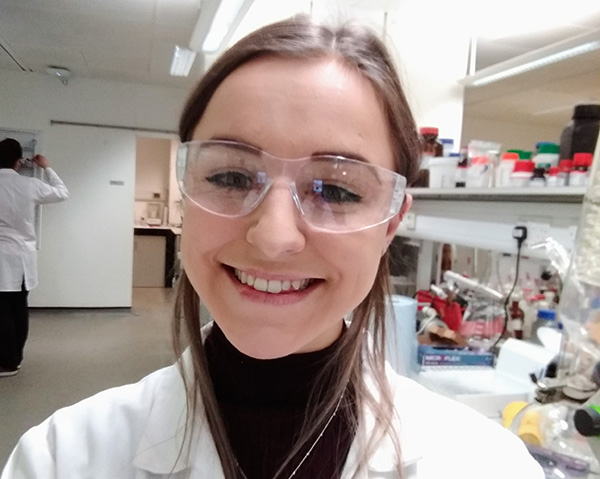Equality and Diversity with PhD Student Christina Kousseff
In this blog, we spoke to second year Chemistry PhD student Christina Kousseff about her role on the School of Biological and Chemical Sciences’ equality, diversity and inclusion (EDI) committee.

Christina Kousseff
How did you become involved the EDI committee?
I received an email advertising a PhD student position on the committee, and I immediately wanted to get involved. In my own experience as a woman in materials chemistry, I have felt underrepresented at times, and know it can be a difficult feeling. Therefore, I want to do my part to help everyone who feels this way for any reason. It’s made me passionate about this subject and I was often to be found in the lab discussing EDI issues, but didn’t really have a channel or platform to get more involved. I’m happy to know that the School has this committee, and are actively working to make positive change, and that I can be part of it!
What would you like to achieve in your role on the committee?
Because I’m the PhD representative on the committee, I want to make sure the voices of the PhD students are heard, as well as make sure that they themselves are aware that the EDI committee is there for them, and that they know about the work that is happening to deal with any concerns they may have. I would like to be able to improve the experience of anyone who feels underrepresented or at a disadvantage in any way, as it’s not always easy to be the only person in the room that represents a certain demographic. From a chemistry perspective, this means encouraging more women and people from underrepresented groups into the department, including chemistry PhDs. It’s important for me to reach out to others, and I’m excited that I’ve got an opportunity to make a real difference while I’m doing my PhD.
I think it’s also really important to make people more aware of EDI in their daily lives at the University; ongoing discourse about these topics enables their incorporation into everyday decision-making, and this can translate into a more diverse, welcoming environment for everyone. For example, the words we choose in conversations are important, as well as considering the needs of others in work and social situations, and ensuring that representation is considered when putting together interview panels, going to meetings, or doing public outreach.
What has been your experience of working on EDI committee so far?
The team is working very hard to address any concerns that are raised. Outside of regular meetings, there is a constant conversation taking place, which is quickly being developed into actions: in the short time I’ve been on the committee, I’ve already seen the conception to setup of new systems, such as the recent creation of the menopause café and the development of accompanying guidelines. I’m pleased about the efficiency and the inclusivity of the committee, and with the large number of working groups to focus on different areas, discussions easily lead to productivity. I’m really looking forward to seeing more of the work of the committee being put into place.